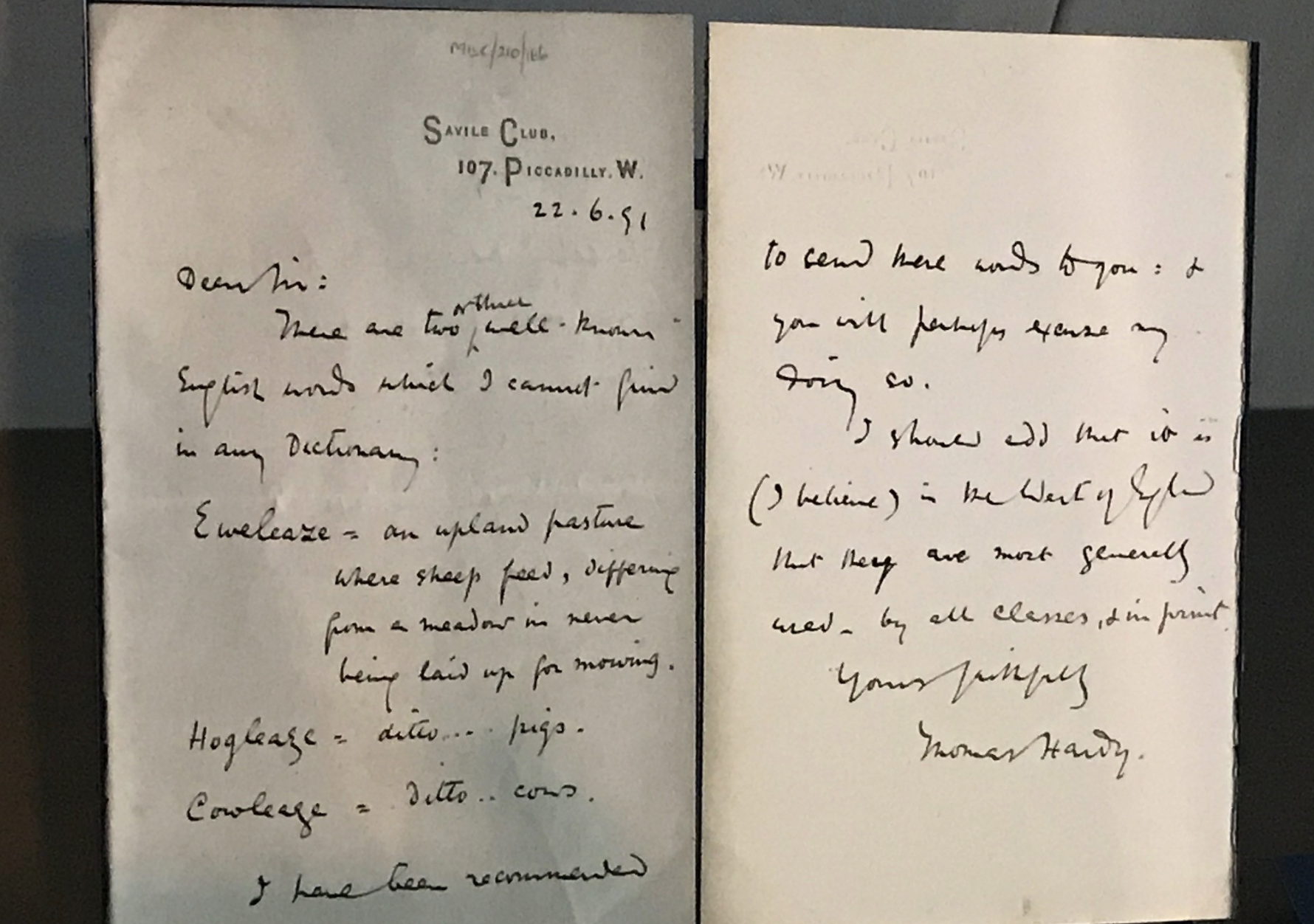Words in Wool: Eweleaze
A lesser-known word that Thomas Hardy helped enshrine in the OED.

Greetings, wool people!
This week I come bearing a (possibly) new word for you. It's courtesy of poet and novelist Thomas Hardy, via the Oxford University Press Archive, which houses the Oxford English Dictionary Archive.

On June 22, 1891, Hardy grabbed a piece of letterhead from his club in London and wrote to James Murray, chief editor of The Oxford English Dictionary.
He wrote,
Dear Sir
Here are two or three well-known English words which I cannot find in any dictionary.
And what word does he begin with?
Eweleaze = An upland pasture where sheep feed, differing from a meadow in never being laid up for mowing.
He goes on to explain that there's also a "hogleaze" for pigs and a "cowleaze" for cows. Who knew?
The letter concludes,
I have been recommended to send these words to you, if you will perhaps excuse my doing so. I should add that it is (I believe) in the West of England that they are most generally used, by all classes, and in print.
Hardy's poem, "In a Eweleaze Near Wetherbury," was set in, you guessed it, a eweleaze.
These days, the word "eweleaze" is mostly known as a popular campsite in Dorset. But the word still exists in dictionaries. Merriam-Webster has it as "ewelease" and provides a much shorter, far less descriptive definition: "a sheep pasture."
I wonder. If we follow the same reasoning, could a yarn stash be rechristened a "yarnleaze" or "wooleaze" since it, too, occupies a space that's been set aside for its exclusive use?
See you next week,
Clara
p.s.-The image of Hardy's letter comes from the recent exhibit, "OED and the Public," that ran at Oxford's Bodleian Libraries from April 15 to July 3, 2022. If you're on Instagram, give the Bodleian a follow.



